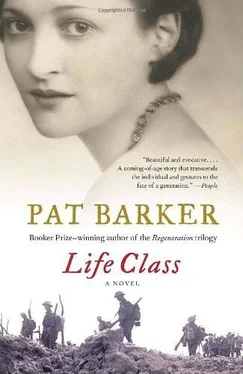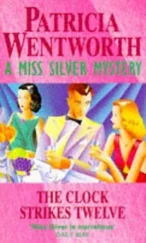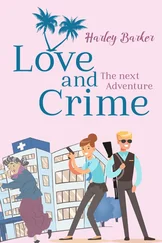Madame Drouet directed his attention to the bed, the chair, the wardrobe, the washstand with its blue-and-white jug and bowl and matching chamber pot in the cupboard underneath. No running water — a major defect — and the privy was at the foot of the garden. But the room was beautiful: though the walls were limewashed, the rugs threadbare, no-coloured, and the curtains so skimpy that even drawn they’d let in most of the light, none of it mattered.
‘How much?’
In English money she was asking five shillings a week, half what he’d have had to pay for a studio in London. Though this wasn’t exactly a studio.
‘Yes,’ he said, at once. ‘I’ll take it.’
He walked away from the house excited, full of joy. He knew he could paint there, but it was more than that even, it was privacy, normality, his own mind back. He was almost hugging himself as he pushed open the door of a café, planning how he would go back to the hut after lunch and move a few clothes and books and his drawing equipment. He’d send for his paints, make it a proper studio, or as close as he could get. His happiness was almost painful, like circulation returning to a dead leg.
Over his coffee, he pulled out a writing pad and started to tell the one person who’d understand what the room meant.
It’s nothing, really. The sort of room that would be given to a maid, very plain and bare, and the door has a stable latch, not a proper knob like the rooms downstairs. Curtains and rugs a bluish grey, though only because they’ve faded to that colour, I don’t think they started out that way. The bed takes up most of the space, which is rather a pity since I shan’t be using it, but I can push it back against the wall. Even dismantle it, I suppose. I don’t think the landlady minds what I do. She’s only too glad she’s got a taker.
The café overlooked the main square. It was market day, the busiest of the week. Paul loved this scene and often sat in the window to watch it. Most of the women of the town were out doing their shopping with bags or baskets over their arms, looking at the food on the stalls, still quite plentiful, their eyes shrewd, fingers shiny from long immersion in hot water, rubbing the coins before they parted with them. They enjoyed their marketing, the little haggles they had with stallholders, the small triumphs, the stopping for chats and gossip. The younger women had children hanging on to their hands, whining for things that couldn’t be afforded. Now and then you saw an impatient tug or a slap, but mainly it was a happy scene.
At the edge of the square ambulances roared past. Only a layer of thin canvas divided the men inside from the people in the square. The stallholders and the shoppers couldn’t see the men inside, but surely they must be able to hear them, the cries torn out of them at every bump and hollow in the road. Perhaps they’d switched off. Perhaps they didn’t hear the cries any more than they noticed the flicker and rumble of guns. It’s the hardest thing in the world to go on being aware of somebody else’s pain. He couldn’t do it, so he was in no position to criticize others who couldn’t either.
Two miles up the road to hell. No point blaming those women because they can’t imagine it. He can hardly realize it himself, sitting there by the window, stirring his coffee, bubbling with excitement about his room, the work he intends to do there and the new idea that’s beginning to take root in his mind.
On the other side of the glass, a woman is walking along the pavement with her child, a toddler. Every few steps she stops and waits for him to catch up. He’s tired, he keeps pulling at his ears and whimpering, but he won’t let his mother pick him up, he’s a big boy now, too big to be carried. He dances on the spot with rage, not knowing what he wants. Exasperated, his mother scoops him up and carries him off, the boy crying as if his heart will break.
Watching the small everyday drama, Paul thought, If it’s safe for that woman and her child …
I’ve had an idea. Why don’t you come out here? Oh, not to nurse — I know you’d hate that — but just for a few days. The town’s full of women and children, it’s never been shelled, I really can’t see there’d be any risk, and you’d be interested. It mightn’t be possible to get here, though. We’re in the forbidden zone. Which sounds awfully dramatic, but really just means civilians (other than residents) aren’t allowed, except on approved business. For women, approved business means nursing. (Though there is one other profession that’s welcomed, or at least tolerated. I expect you can guess what it is.) It’s the wives and mothers they want to keep out. Too big a reminder of other responsibilities: heavy work needing to be done on the farm, roofs leaking, boys running wild, etc.
Don’t reject the idea out of hand. I know it sounds preposterous, but I do think you’d enjoy it. You could stay in my room. Please, please, consider it. You probably won’t be able to manage it — in fact the more I think about it the less likely it seems — but at least give it a try. Honestly, I look out of the window now and the place is full of women and children and they’re in no danger at all.
There must be masses of other things to tell you, but I can’t think of any of them now. I can only think about you coming here and I want to get this in the post as fast as possible. Obviously, I’d have to keep working, but I could swap shifts if necessary so we’d have every evening together, and I could arrange to take my day off while you were here. So we would see quite a lot of each other. And on your terms, of course. I hope you don’t feel there’s any pressure. I can always sleep in the hut. Do please say yes.
Ever your Paul.
Lewis impinged on him more and more. His breathing, his habit of humming while he shaved, the way he tapped the razor on the edge of the bowl … Every second of the time they spent in the hut, Paul was aware of him as a physical presence. He even caught himself watching Lewis while he slept, and the longer he stared the odder Lewis seemed. That blotched skin, it didn’t look human. Once, as Paul bent over him, Lewis’s eyes opened unexpectedly. They were pale blue, with flecks of another colour, brown or green. For Christ’s sake, even his eyes were freckled.
Paul arrived on duty to find a patient just being brought back from theatre. He’d had his left leg amputated three days ago but then further surgery had been required to try to eradicate gangrene. The stump had to be irrigated with hydrogen peroxide. Not the pleasantest of jobs. Gloved, gowned and masked, Paul concentrated on trying to work fast. He couldn’t bring himself to say any of the soothing anodyne things people did say, It’ll soon be over. It wouldn’t ‘soon be over’ and even when it was there would only be a few short hours before the next dressing. Once the man arched his back, but he made no sound. Not a groan did he utter from beginning to end.
As he took off his mask Paul became aware of Burton standing beside him, still in scrubs though he must have finished for the night. He was pulling at his chest and arm hair, something he often did, either a constant irritable tugging or sometimes a fastidious fixing of the hair between index and middle finger like a barber lining it up for the scissors. Somewhere inside Burton was a hairless pre-pubescent boy who’d never got over the shock.
‘Well done,’ he said.
The words jarred. The patient wiped sweat off his upper lip, his only small concession to the pain. There was never enough morphine. It was a disgrace what these men had to endure without anaesthetic, and this one was going to die anyway.
They walked to the end of the ward together. Burton seemed inclined to talk. You often found that on night duty, people opened up in a way they wouldn’t dream of doing by day and there was less awareness of rank. With the wards darkened and night pressing in around the huts, people clustered round whatever light they could find.
Читать дальше












